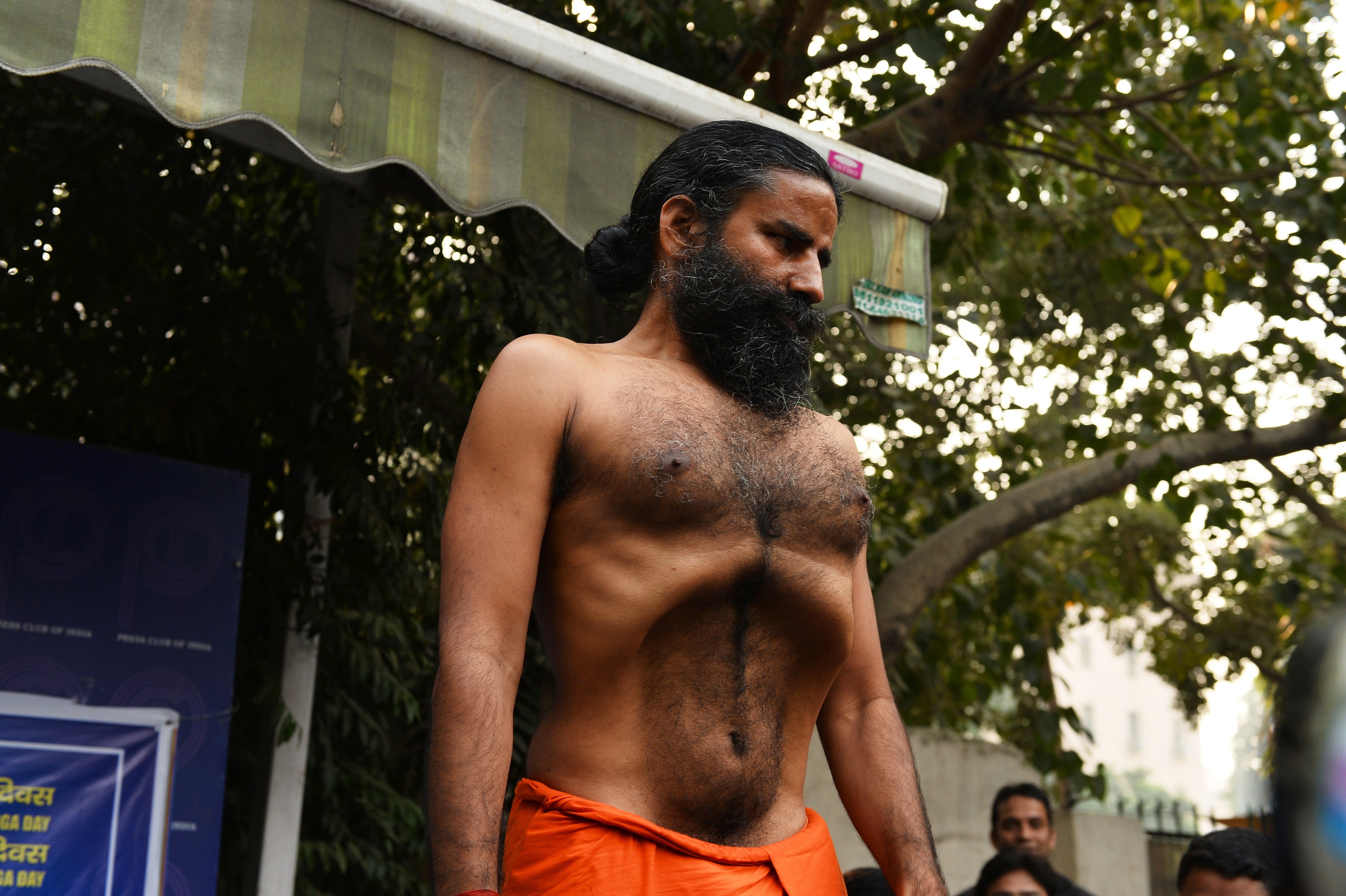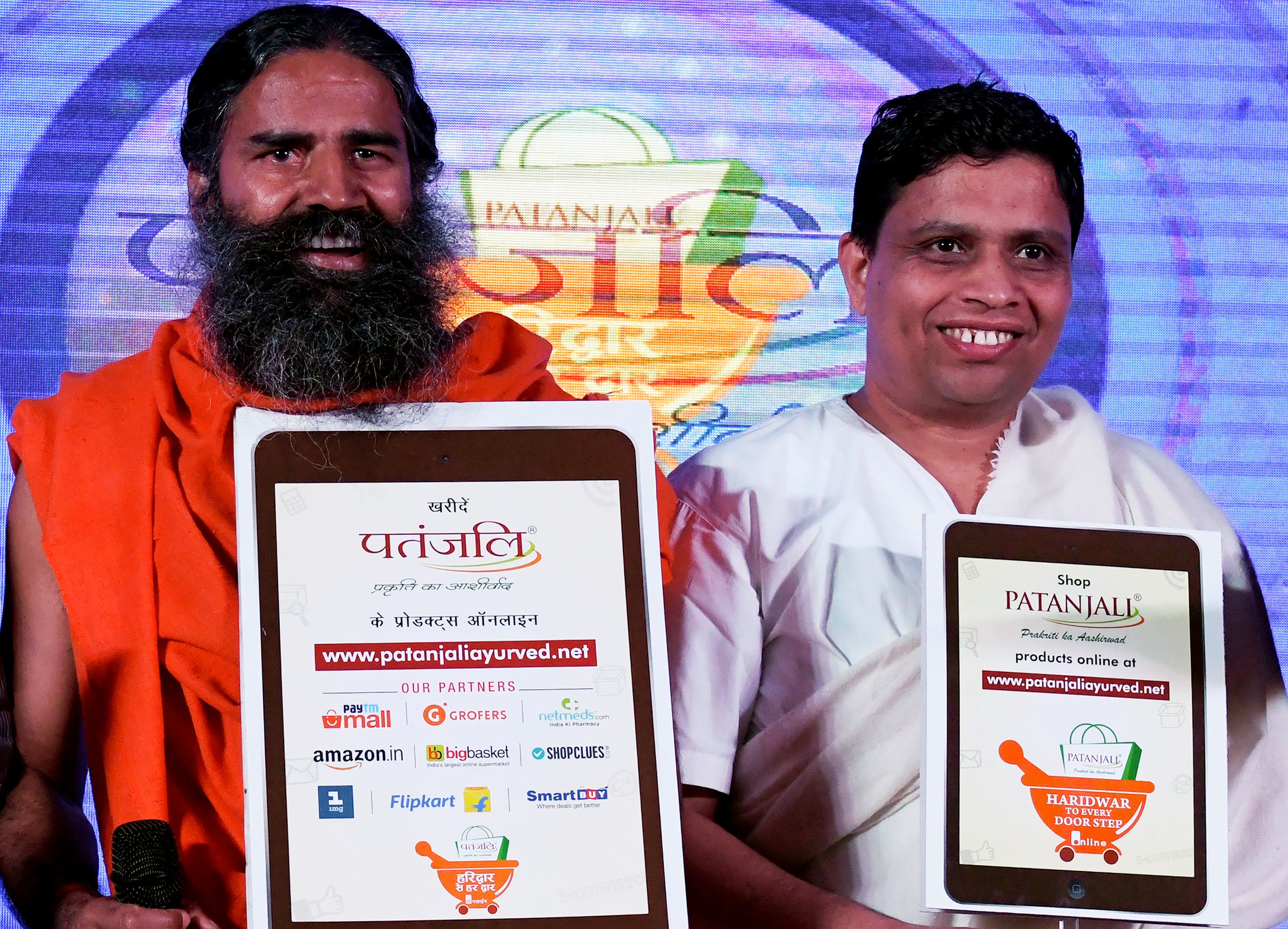Indian yoga guru Ramdev issues ‘bigger’ apology after scolding from top court over misleading ads
Apex court pulls up popular yogaguru Ramdev for ‘microscopic’ apology

Your support helps us to tell the story
This election is still a dead heat, according to most polls. In a fight with such wafer-thin margins, we need reporters on the ground talking to the people Trump and Harris are courting. Your support allows us to keep sending journalists to the story.
The Independent is trusted by 27 million Americans from across the entire political spectrum every month. Unlike many other quality news outlets, we choose not to lock you out of our reporting and analysis with paywalls. But quality journalism must still be paid for.
Help us keep bring these critical stories to light. Your support makes all the difference.
Indian yoga guru Ramdev has issued a second public apology in a newspaper – this time bigger and more prominent – after being admonished by the Supreme Court in a case of misleading advertisements that claim his traditional ayurvedic medicines can cure chronic diseases.
The latest apology on Wednesday comes a day after the top court pulled up Mr Ramdev and Acharya Balkrishna, the cofounder of his ayurveda company Patanjali, asking if the apology was as big and expensive as the company’s usual “front page” ads for herbal drugs.
Mr Ramdev, who has millions of followers around the world, and his close aide Balkrishna, are facing contempt action from the court for publishing false and misleading advertisements.
The court has come down heavily on the 58-year-old yoga guru who is believed to have close ties with Indian prime minister Narendra Modi and is a vocal advocate for his Hindu nationalist Bharatiya Janata Party (BJP)-led government.
The court had chided Mr Ramdev for a 22 April public apology, saying the print size should not be such that “we have to see it with a microscope”.
“But is your apology the same size as the advertisements you normally issue in newspapers? Did it not cost you ‘tens of lakhs’ to put front-page advertisements?” Justice Hima Kohli asked.

The advertisement published on Wednesday in newspapers came with a red banner on a yellow background unlike the first one which was a seven-line paragraph on a regular white background.
“We earnestly apologize for the mistake made in publishing our advertisements and it is our whole-hearted commitment that such errors will not be repeated,” a part of the apology said.
“We undertake to abide by directions and instructions of the Hon’ble Court with due care and utmost sincerity. We undertake to uphold the majesty of the court and comply with applicable laws and directions of the Hon’ble Court of law/relevant authorities.”
It also tendered an apology for holding a press conference on 22 November last year after giving an undertaking to the court that it would refrain from making statements on the case or issuing misleading advertisements.
Earlier this month, the Supreme Court banned the company from publishing ads, saying the yoga guru was spreading misinformation.

It was after the Indian Medical Association (IMA) sued Patanjali in 2022 for "false" advertisements that claimed that its products could cure diseases such as thyroid, diabetes, and even macular degeneration.
Earlier this month, Mr Ramdev said he made a mistake and apologised to the court for defying its orders to stop the misleading advertisements. Mr Ramdev, dressed in a saffron-coloured robe, pleaded before two Supreme Court judges with folded hands and said he felt provoked to react after his firm Patanjali Ayurveda’s hugely popular medicines were called “pseudo-science” by critics, but added he was not justifying his action.
The Supreme Court has previously refused to accept two formal apologies from him and Mr Balkrishna, made through their lawyers, in the contempt case and also admonished the head of a state drugs regulator for not taking legal action against the firm.
“I want to say we made a mistake,” Mr Ramdev told the judges in the packed courtroom. “What we said at the time should not have been said.”
Last year, the court asked the company to stop making such assertions and warned of a potential fine of Rs 10m rupees (£96,000) per product if they persisted.
In his youtube videos with channel followed by 10 million people, Mr Ramdev falsely claimed that taking Patanjali’s "anti-cancer juice" along with a diet regime "cure all types of cancer in seven days to two months". He made the claim during a yoga session attended by dozens of people.
Join our commenting forum
Join thought-provoking conversations, follow other Independent readers and see their replies
Comments